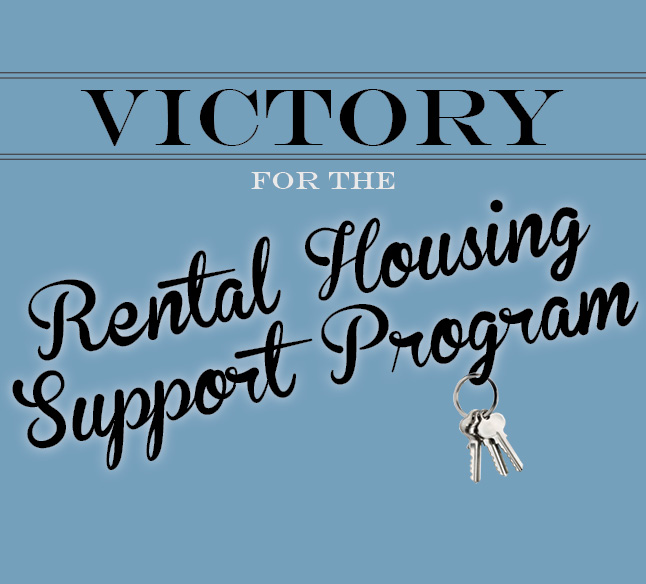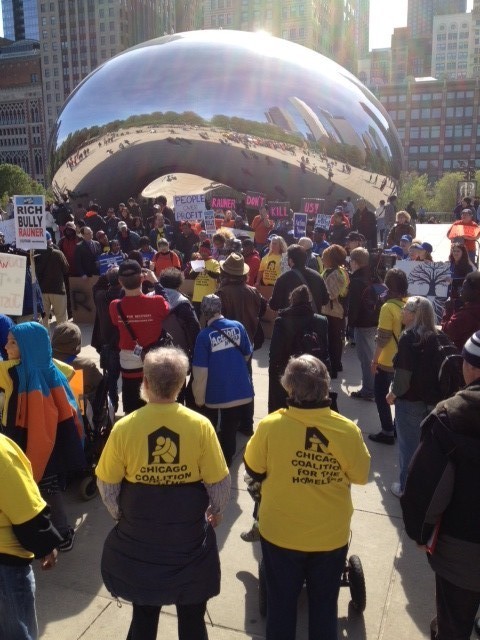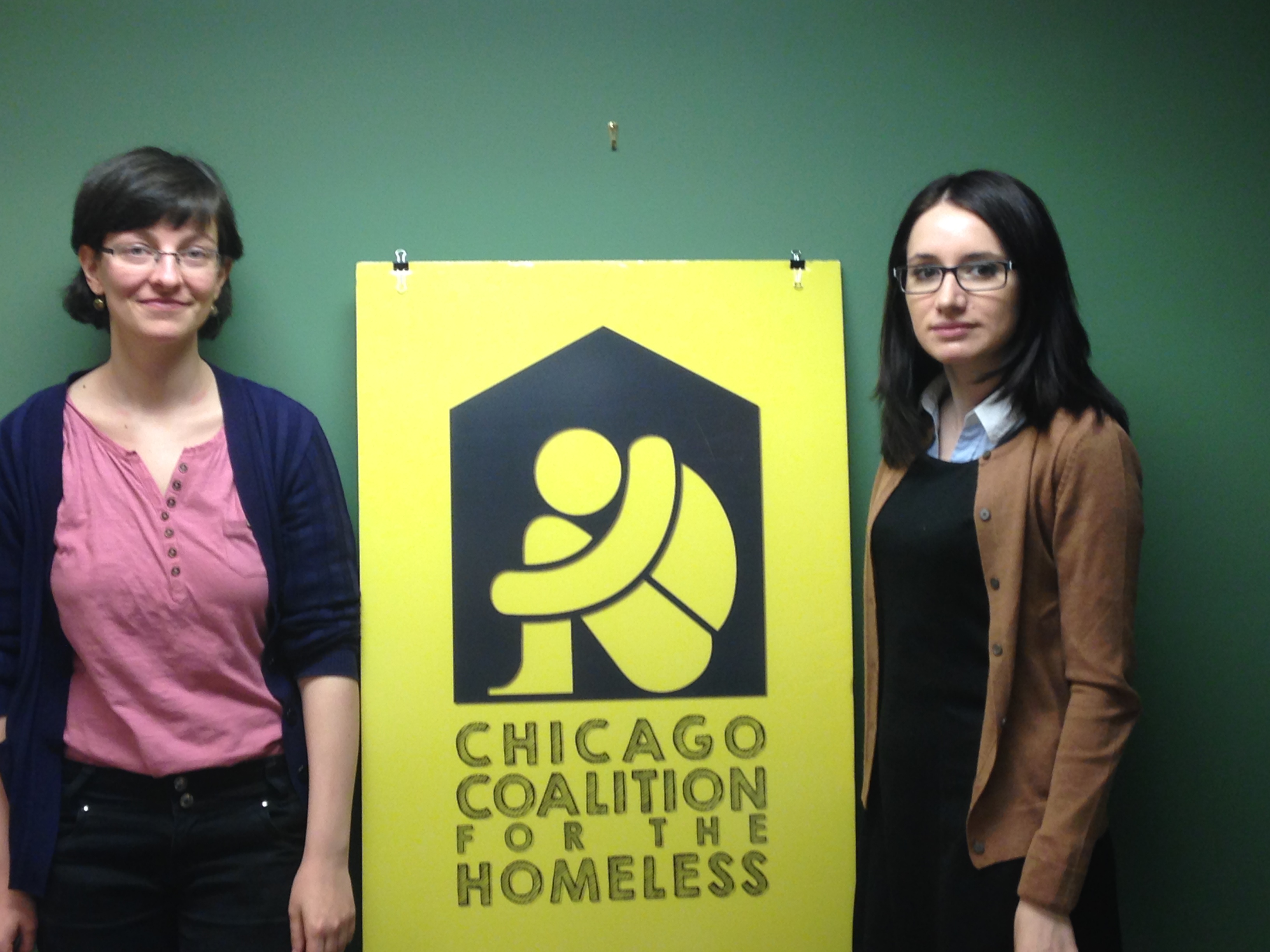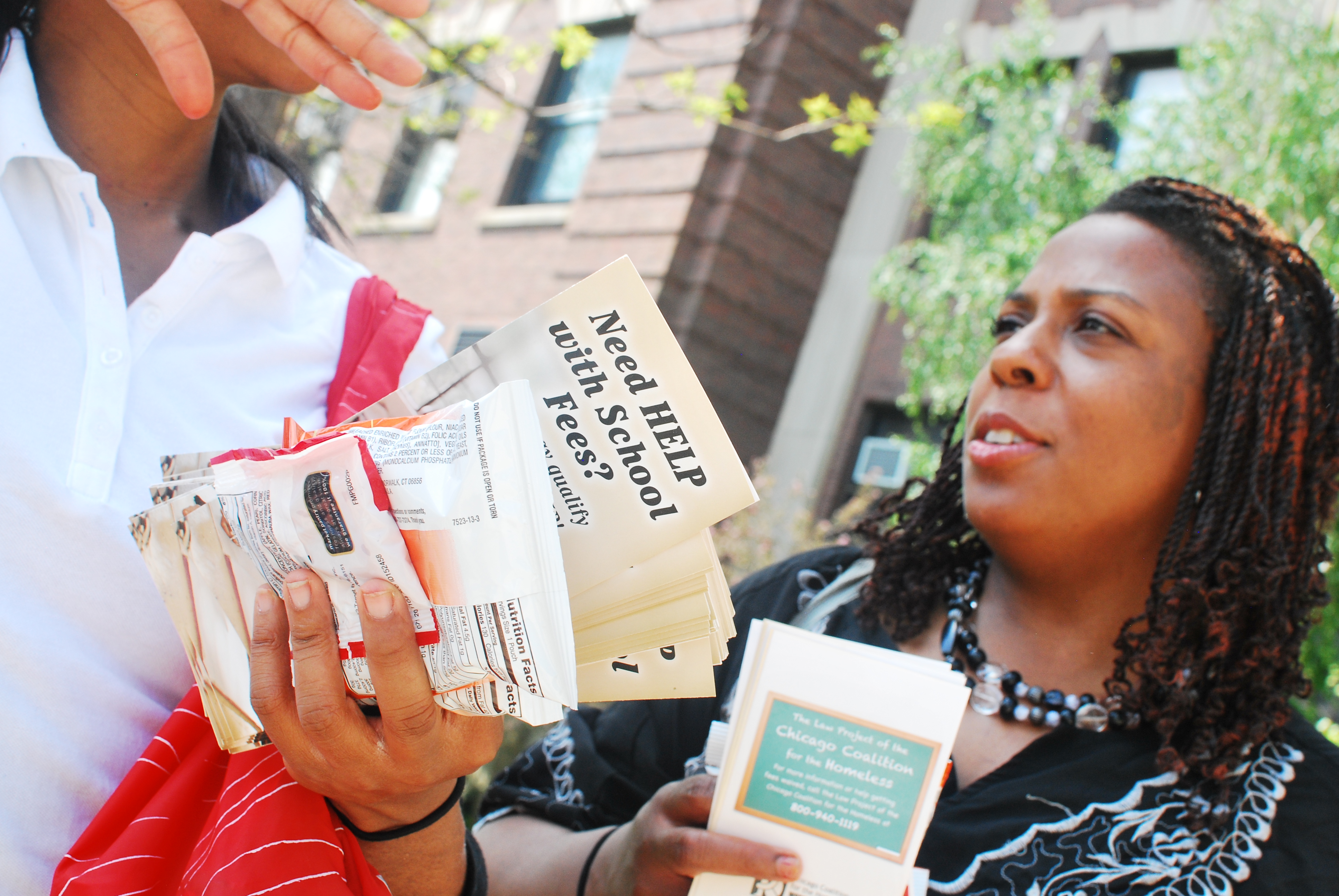CCH sent the following letter on May 27 to the Chicago Loop Alliance, taking issue with its new campaign regarding interactions with homeless people downtown. The campaign is described in a story on DNAinfo.com, “Don’t Give to Panhandlers, Give to Charities, New Loop Campaign Advises.”
Michael M. Edwards, President & CEO
Chicago Loop Alliance
27 East Monroe Street
Chicago, IL 60603
Dear Mr. Edwards:
The Law Project of the Chicago Coalition for the Homeless (CCH) has become aware of the “Change for the Better” brochure which the Chicago Loop Alliance (Alliance) has created and is promoting in the Loop area. As perhaps you know, our organization does not support the use of this brochure which both targets homeless persons in public places for special scrutiny by others thereby demeaning them; and urges calling police on those engaging in lawful conduct. Because the brochure is inaccurate and misleading, CCH requests that – at a minimum — the Alliance correct it immediately. Continue reading On Chicago Loop Alliance’s new tactics regarding homeless people








